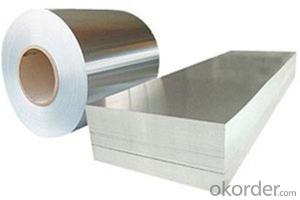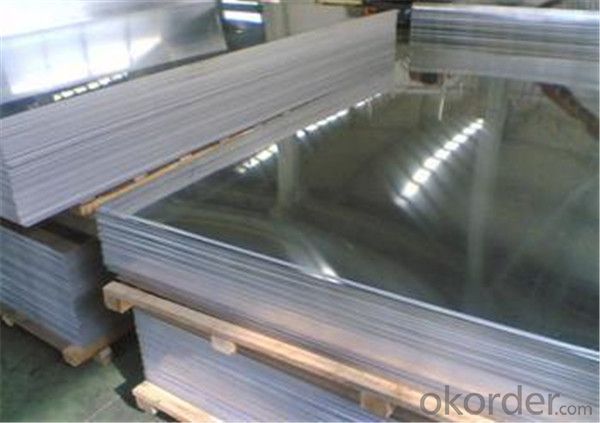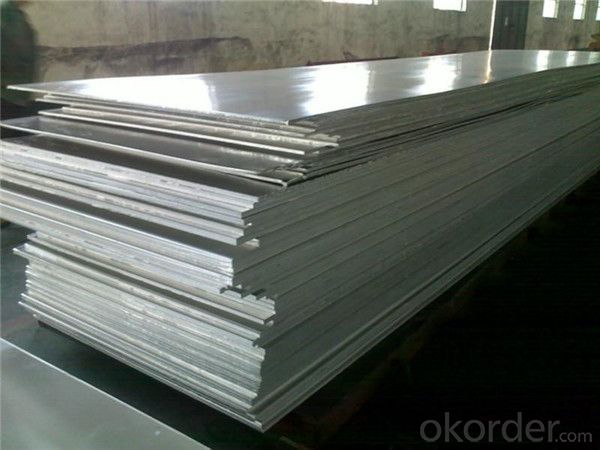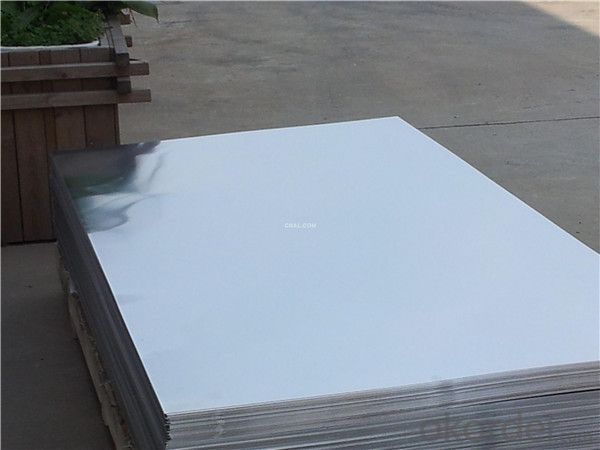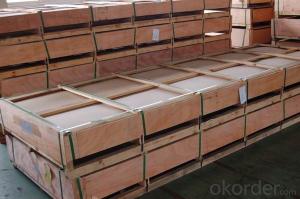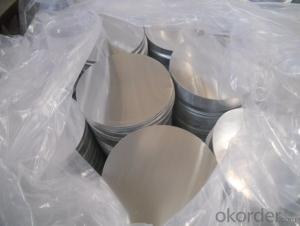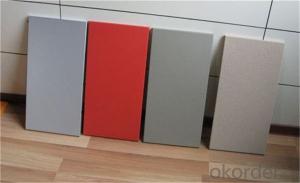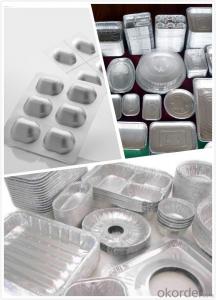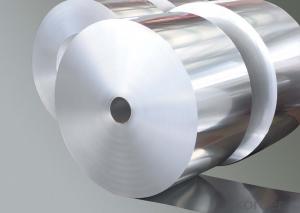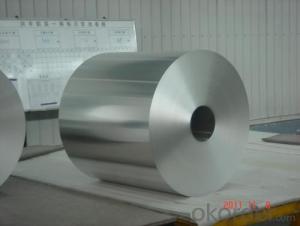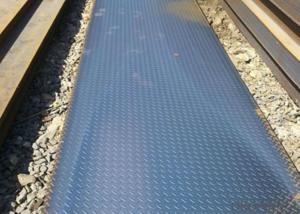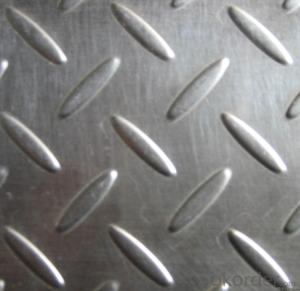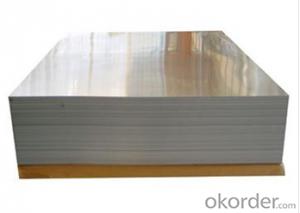Extra Heavy Duty Aluminum Foil Sheets 1mm Thick Factory Direct Supply
- Loading Port:
- Shanghai
- Payment Terms:
- TT OR LC
- Min Order Qty:
- 5 m.t.
- Supply Capability:
- 10000 m.t./month
OKorder Service Pledge
OKorder Financial Service
You Might Also Like
Description
Packaging & Shipping
Package: Standard seaworthy packing or as per request
Transports:Containler sizes:
20ft GP:5898mm(Length)x2352mm(Width)x2393mm(High)
40ft GP:12032mm(Length)x2352mm(Width)x2393mm(High)
Specification of aluminum sheets 1mm thick:
Alloy | Temper | Thickness | Width |
3105,3005,3003,3103,3004,3104 | H12,H14,H18,H22,H122 | 1mm | 300-2100mm |
aluminum sheets 1mm thick application and character:
1.cookware, automotive and lighting industries.
2.Low anisotropy, which facilitates deep drawing.
3.Strong mechanical properties.
and moreover,the aluminum sheets 1mm thick prices is competitive.
Our Services
1 Customer and reputation first
2 Timely feedback
3 Low MOQ
4Timely delivery
5 Competitive price
6Different size can be supplyed as your request
7 Professional service of technical and shipping support
8More than 30 years experience in the cold and hot rolled sheet/coil/stri experience
Photos
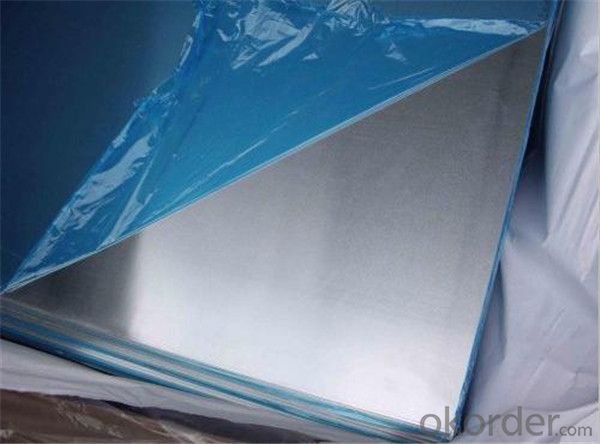
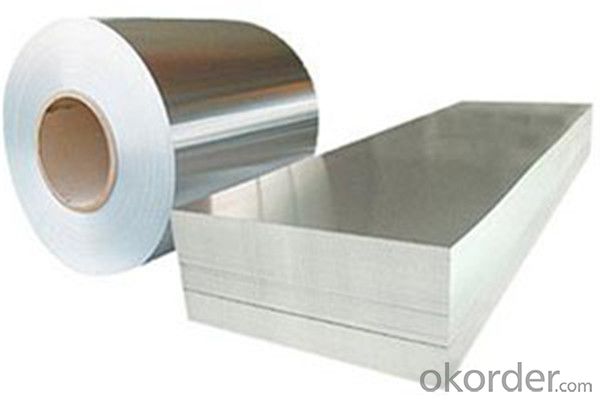
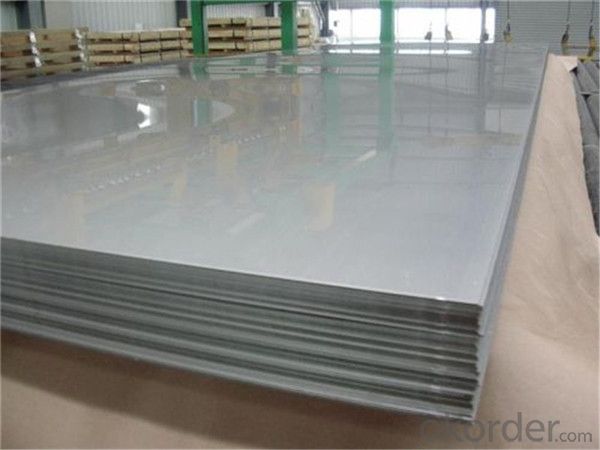
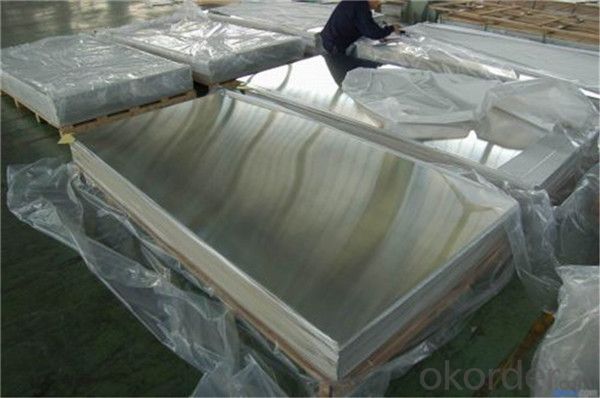
- Q: 2mm aluminum welding with oxygen welding or argon arc welding good?
- In order to improve the welding quality and welding seam strength, 2 mm aluminum should be the first choice of AC TIG welding + aluminum welding wire welding.The second is: oxygen acetylene (or oxygen propane flame gas welding) + + aluminum welding wire welding aluminum solder.
- Q: Can aluminum sheets be used for heat sinks?
- Indeed, heat sinks can utilize aluminum sheets. Due to its outstanding thermal conductivity, aluminum serves as an ideal substance for efficiently diverting heat away from electronic parts. With the ability to be fashioned into different dimensions and configurations, aluminum sheets can optimize the dispersion of heat. They find widespread employment in computer processors, LED lights, and power electronics, where the preservation of peak performance and the prevention of overheating hinge on effective heat dissipation. Moreover, the lightweight nature and cost-effectiveness of aluminum sheets render them highly favored for heat sink purposes.
- Q: Are aluminum sheets suitable for electrical bus bars?
- Certain applications may find aluminum sheets suitable for use in electrical bus bars. Aluminum possesses several properties that make it a viable choice for bus bars. Firstly, aluminum is a lightweight material, which can be advantageous in situations where weight reduction is crucial. Furthermore, aluminum exhibits good electrical conductivity, although it falls short of copper in terms of conductivity. Nevertheless, aluminum bus bars can still handle high electrical currents and are commonly employed in power distribution systems. However, one drawback of aluminum bus bars is their higher resistance compared to copper bus bars. Consequently, they have a tendency to generate more heat, particularly under heavy current loads. To address this issue, aluminum bus bars are often designed with larger cross-sectional areas to minimize resistance and dissipate heat more effectively. Another challenge associated with aluminum bus bars is their vulnerability to oxidation and corrosion. This concern can be tackled by applying protective coatings or utilizing alloys that offer superior corrosion resistance. Additionally, it is crucial to ensure proper insulation and avoid contact with dissimilar metals to prevent galvanic corrosion. In conclusion, aluminum sheets can serve as suitable materials for electrical bus bars, particularly in scenarios where weight reduction is a priority. However, careful consideration must be given to factors such as electrical conductivity, heat dissipation, and corrosion resistance to ensure optimal performance and longevity of the bus bars.
- Q: What are the specific rules or codes that govern the use of aluminum sheets in residential construction?
- <p>Yes, there are special regulations related to using aluminum sheets in residential buildings. These regulations can vary by country, state, or municipality, but generally, they cover aspects such as material standards, fire resistance, structural integrity, and energy efficiency. For example, aluminum sheets must meet specific thickness and strength requirements to ensure structural safety. They must also comply with fire codes, which may require certain fire-resistant coatings or treatments. Additionally, energy codes may dictate the insulation value of aluminum sheets used in walls or roofs to improve thermal performance. It's crucial to consult local building codes and regulations to ensure compliance when using aluminum sheets in residential construction.</p>
- Q: what is aluminum pigment paint in the scratch cards of lottory?is it metalic or organic sabstance like latex?
- They mix aluminum or just about any opaquing material with a wax-like coating that will be easily scratched off. The early tries at this were defeated with strong lasars and cards could be read and be selected to be handed to confederates. Very fine AL power is available and is a safe product and is very opaque and cheep.
- Q: How do aluminum sheets perform in high-temperature environments?
- Due to its exceptional thermal conductivity and relatively low melting point, aluminum sheets are highly effective in high-temperature conditions. With a melting point of 660.3°C (1220.5°F), aluminum is able to endure elevated temperatures without melting, unlike many other metals. Furthermore, its remarkable thermal conductivity enables efficient heat dissipation from the surface, preventing overheating and maintaining the integrity of structures. This quality makes aluminum sheets ideal for applications in industries such as aerospace, automotive, and construction, which often encounter high temperatures. However, it is crucial to acknowledge that prolonged exposure to extremely high temperatures can lead to a weakening of aluminum and a reduction in its mechanical properties. Consequently, in extreme high-temperature environments, it may be necessary to explore alternative materials or implement additional protective measures to ensure optimal performance.
- Q: I need to make an aluminum cylinder out of 1/8 6061 plate and tube. I don't have a TIG setup and was considering using Bernzomatic aluminum soldering rods. The cylinder will be pressurized from 20-60 psi. Assuming a clean job, is this pressure ok? How much pressure can the joint take? Also, although the solder does not need flux, should i use it anyway?
- to your setup i might merely persist with the iron. It would not sound like the burden mark downs is going to be properly actually worth the greater suitable probability for a on a regular basis motive force. forged iron is merely greater rugged and can take greater abuse than aluminum. Aluminum has its place yet its no longer in a on a regular basis motive force like it variety of feels you're development.
- Q: What types of aluminum sheets are recommended for outdoor applications due to their durability and resistance to weather conditions?
- <p>Yes, there are specific types of aluminum sheets designed for outdoor use. Marine-grade aluminum sheets, such as 5083 or 5086 alloys, are highly resistant to corrosion and are ideal for marine applications. Aluminum sheets with a protective coating, like anodized aluminum or those with a fluoropolymer finish, offer excellent weather resistance and durability. Additionally, aluminum sheets with a mill finish or those coated with a clear coating can also be suitable for outdoor use due to their resistance to UV rays and ability to withstand temperature fluctuations.</p>
- Q: does anyone know how aluminum recycling works in term of redox reaction ( oxidizing, reduced, oxidizing agent, reducing agent?). how is that relate to the process of electrochemistry?
- Aluminum recycling is done by just melting the cans back into molten metal. There are reactions, but those deal with the impurities, not the aluminum. See the reference.
- Q: Are 101 aluminum sheets suitable for mold making?
- Generally, 101 aluminum sheets are not suitable for mold making. Although aluminum is often used for making molds because it is durable and can withstand high temperatures, 101 aluminum is a weak alloy that may not meet the necessary criteria for mold making. It is advisable to use aluminum alloys with greater strength and hardness, such as 6061 or 7075 alloys, for this purpose. These alloys provide better resistance against wear, deformation, and heat, making them more appropriate for creating molds that can endure the pressures and temperatures involved in the molding process.
Send your message to us
Extra Heavy Duty Aluminum Foil Sheets 1mm Thick Factory Direct Supply
- Loading Port:
- Shanghai
- Payment Terms:
- TT OR LC
- Min Order Qty:
- 5 m.t.
- Supply Capability:
- 10000 m.t./month
OKorder Service Pledge
OKorder Financial Service
Similar products
Hot products
Hot Searches
Related keywords
